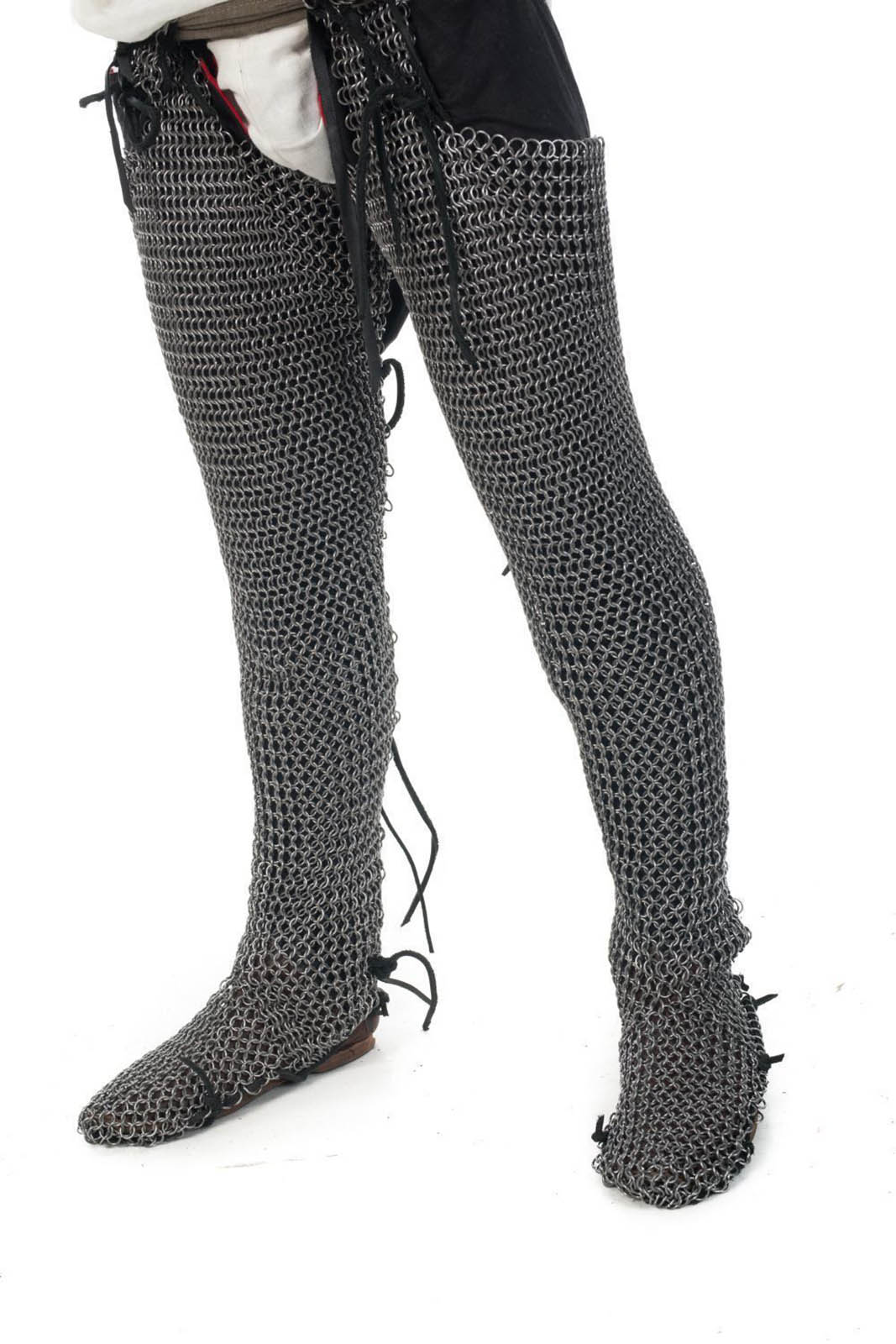Acerca de Medias de malla
This section represents chainmail stockings for leg protection.
We make this armour for individual parameters and regards of customer. Mail protection is being manufactured according to unique museum samples and paintings from ancient manuscripts.
You need to do few simple steps to make an order for these stockings:
- Open the page of item;
- Choose type of metal (mild steel or blued mild steel).
If there are some difficulties with choosing, please do not hesitate to contact our manager with any question of armour.
Once all options have chosen, you need to add item to the cart and make a payment. After that, manager will contact you with measurement request and specification of order’s details.
Mail stockings from this section are perfect for participation in the tournaments of medieval fencing, historical festivals, buhurts and reenactment events. Depending on the complement, such defense is compliant to the standards and rules of such social movements, as SCA (The Society for Creative Anachronism), HEMA (Historical European Martial Arts), HMB (Historical medieval battles).
If you did not find the wished armour in this section, we can make it individually for you. Just send picture with detailed description to [email protected]. Then we will quote you and discuss details of order.
As per chroniclers, mail armour was the most popular among European knights in the XII-XIII centuries. Mail stockings (which were called chausses by analogy with woolen or linen leg clothing) were not exception. Rule of Crusaders Order (about 1165 year) prescribed, that knights have to wear metal chausses together with long mail hauberk.
Primarily, blacksmiths were making mailed defense of square piece of mail sheet. It fitted leg close from the front, and was fixed with leather belts on the backside of leg. It was convenient to fit mail armour by taking belts off or drawing them tight. Chausses were being attached to the belt with several leather or fabric strings. As weight of such armour was about 3-4 kg, stockings had being additional tied up with leather strings under the knee for better weight distribution.
 Later, warriors started to use one-piece chausses. Starting the XIII century, two-part chausses almost went out of use. Back part of mail armour were shorter, that the front one, for more comfortable riding. Such type of leg protection can be seen in the manuscript “Vita Ædwardi Regis” (“Life of King Edward”, kept in the “British Library, London, UK).
Later, warriors started to use one-piece chausses. Starting the XIII century, two-part chausses almost went out of use. Back part of mail armour were shorter, that the front one, for more comfortable riding. Such type of leg protection can be seen in the manuscript “Vita Ædwardi Regis” (“Life of King Edward”, kept in the “British Library, London, UK).
Opinions of historians vary on the point, whether mail chausses covered feet or not. Some sources shows chainmail shoes’ pieces, which were covering only top of foot. On another painting, you can clearly see leather sole, which is attached to the mailed chausses. Therefore, they were simply drawn on the shoes. In addition, some proofs exist, that shoes were worn over such chausses. Probably, both variants were in use. Common feature was non-slippery leather sole. In other case, knight could not be able to ride, walk or especially run.
Mail protected legs of slashes and did not hinder warrior’s movements at the same time. Knight was free to move and fight in both mounted and dismounted actions. However, this armour could not save of crushing blows. For that reason, from the XIII century, knee caps and plate greaves came into use to increase protection level of the mail stockings.

